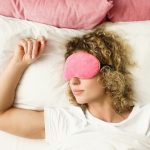1 in 5 young adults use cannabis or alcohol to sleep, study finds
A new study from the University of Michigan reveals that more than one in five young adults in the U.S. use cannabis or alcohol...
The link between sleep and mental health
Have you ever heard someone say they woke up on the wrong side of the bed?
Well, there’s actually some truth to that idea.
Struggling to...
Does the full moon make us sleepless?
Have you ever tossed and turned under a full moon and wondered if its glow was keeping you awake?
For generations, people have believed that...
New drug could treat sleep apnea without a mask
A new study has found that the drug sulthiame can help people with obstructive sleep apnea by reducing breathing pauses and improving sleep quality.
This...
Shift work may raise kidney stone risk, study finds
A new study has found that people who work outside regular daytime hours—especially those on night shifts—have a higher chance of developing kidney stones.
The...
New way to treat high blood pressure in people with sleep apnea
Sleep apnea is a common sleep disorder that affects almost 40 million adults in the United States.
Many people use CPAP machines to help them...
How sleep apnea might speed up aging and harm the heart
Obstructive sleep apnea (OSA) is known for causing breathing problems during sleep, but new research shows it may do much more.
A recent review published...
Too little or too much sleep may raise overactive bladder risk
A new study has found that both too little and too much sleep may increase the risk of overactive bladder (OAB), a condition that...
Poor sleep may increase brain aging and dementia risk
People who don’t sleep well may have brains that look older than they really are, according to a large brain imaging study from Karolinska...
Leg movements during sleep may show higher diabetes risk
Poor sleep is not just about feeling tired the next day. It can also affect your long-term health.
A new study published in the journal...










